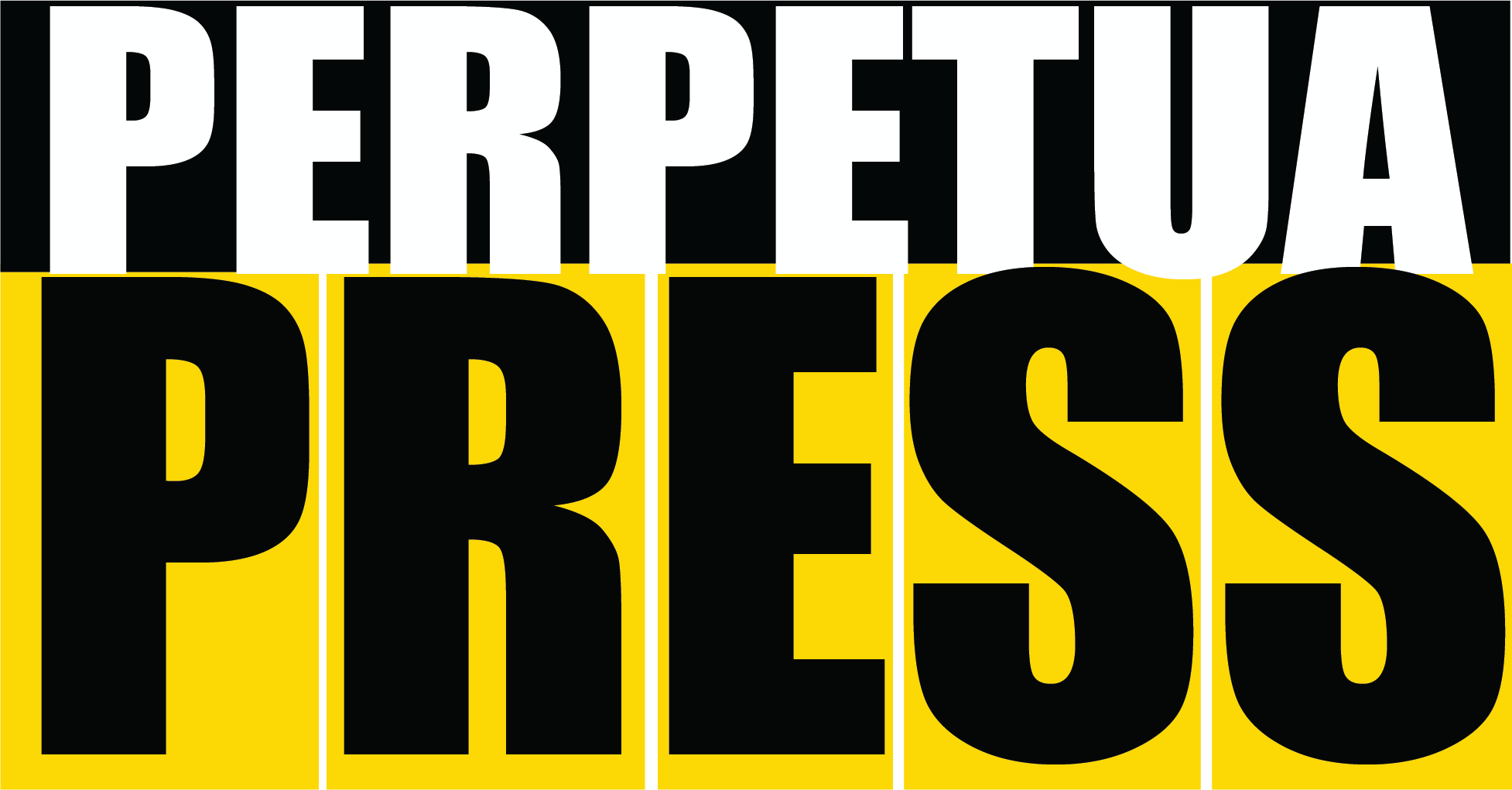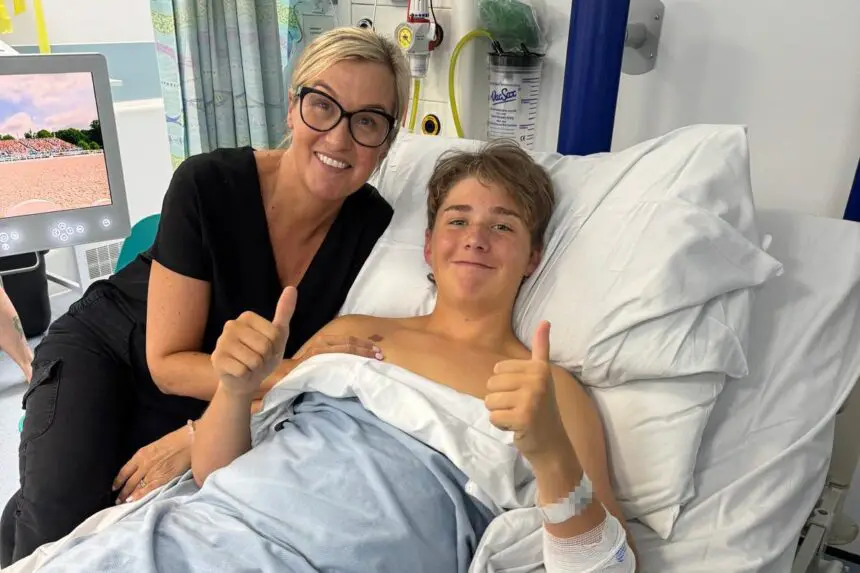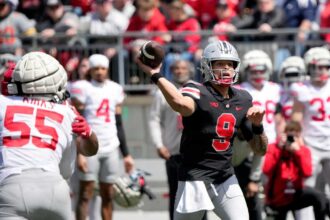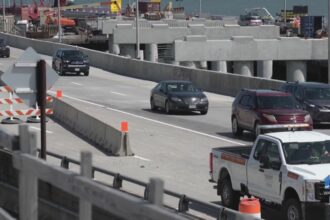Mapping App Credited with Saving Teen’s Life After Severe Heat Stroke
A mother has credited a mapping app with saving her son’s life after he collapsed from heat stroke during a run, suffering multi-organ failure.
Will Coen, then 15, was on a 10km run with his older brother George, 22, in July 2024 when the incident occurred. His mother, Sarah Coen, initially had no concerns, describing her sons as “sporty and healthy boys”.
A Terrifying Ordeal in the Woods
Approximately 6km into their run, with temperatures around 20C, Will became “confused” and disorientated before collapsing unconscious. George immediately called his mother, urging her to dial 999.
Initial Helplessness
Sarah described the moment as “one of the most terrifying moments of [her] life”. Despite contacting emergency services, she faced a critical hurdle: she did not know their exact location deep within the woods, and poor phone signal further hampered communication, preventing immediate dispatch of an ambulance.
The Lifesaving Intervention of What3words
Crucially, George had years earlier downloaded the what3words app, a system that pinpoints precise locations using unique three-word combinations. Armed with this vital information, Sarah was able to direct emergency responders to her sons.
The Lincs & Notts Air Ambulance (LNAA) was swiftly dispatched, transporting Will to hospital. There, doctors confirmed he had suffered liver and kidney failure, a severe consequence of exertional heat stroke (EHS).
Reflecting on the ordeal, Ms Coen stated the app “helped save [her] son’s life”, highlighting the unexpected role technology played in a life-threatening emergency.
Sarah, who is now retired and lives in Lincolnshire, said that, without what3words, Will may not have survived, and she “cannot describe how grateful” she is for the medical care he received.
She stated: “I just felt completely helpless. I’m glad that George was with him, but I was completely helpless, I didn’t know where he was, I couldn’t look after him. I just fell to pieces. I would urge and encourage anyone to download what3words – it helped save my son’s life.”
The Critical First Hour
In July last year, the Coen family had just returned from a holiday to Egypt and were settling back into life at home. With George training for the army at the time, he suggested going on a 10km run on the morning of July 29, and Will decided to join him. Although it was warm – around 20C – Sarah said she was not concerned about the weather, as they had just experienced 40-degree heat in Egypt.
Speaking about the first few kilometres, Will said: “It was tough, definitely, don’t get me wrong, but I didn’t feel like I was about to die. We started setting off and then I noticed some warning signs, which I probably should have paid more attention to.”
According to the NHS, heat stroke is a potentially life-threatening condition and can cause the following symptoms:
- Tiredness
- Weakness
- Feeling faint
- Muscle cramps
- Feeling or being sick
At around 6km, Will said he started to feel “cloudy in (his) mind” and “super hazy”, and George called Sarah, asking if she could pick them up at a specified meeting point. After pushing on for another 500m, however, Will lost his balance, collapsed, and fell unconscious, and George called Sarah again to say she needed to dial 999 immediately.
Sarah said: “I was trying to explain to the lady in the ambulance service what had happened, but she was saying: ‘Is the patient breathing?’ And I just said, ‘I don’t know, I don’t know what’s going on.’ It was absolutely horrendous … and for some reason, my phone didn’t have location services on.”
In the meantime, two dog walkers had come across the brothers and they helped moved Will into the shade, removing his clothing and pouring four litres of water over him to cool his body down. At this point, George remembered he had the what3words app, and he decided to leave Will with the two strangers and run to Sarah to show her the address to give to the emergency services.
The what3words system divides the world into a grid of 3m by 3m squares and gives each square a unique combination of three words, with the technology used by more than 85 per cent of the UK’s emergency services. As an example, ///glorified.pack.offer marks the entrance to LNAA’s headquarters.
After George ran to share the what3words address with Sarah, she then told the emergency services and LNAA was dispatched.
“At this point, it had been an hour that he’d been unconscious,” Sarah said. “Had I downloaded what3words all those years ago, the ambulance would have been there half an hour earlier.”
Medical Battle and Remarkable Recovery
Sarah said the ambulance staff determined Will had collapsed from heat stroke, which was causing concern for a potential cardiac arrest. They put him under general anaesthetic in the woods and transported him to the closest hospital on a ventilator, which was Queen’s Medical Centre in Nottingham.
Diagnosis and Urgent Transfer
There, doctors later diagnosed him with acute liver failure and kidney failure, saying it had been caused by EHS, and he was subsequently transferred to Ward 8 at Birmingham Children’s Hospital for a potential liver transplant.
“I just couldn’t believe it was happening,” Sarah said. “Liver failure can go one of two ways – it either spontaneously starts to recover or you need a transplant. Luckily, Will’s liver took a turn for the better and he started to improve, and we were sent home four days later.”
Full Recovery and Renewed Purpose
Will underwent regular check-ups after being discharged from hospital but has since made a full recovery and does not require any medication. He has returned to school and is back playing sports, and he and Sarah have started volunteering with LNAA to help raise more awareness and funds, as it receives no direct Government funding and requires more than £10 million annually to operate.
Lessons Learned and Advocacy
Will wants to urge other people, particularly during the warm weather in the summer, to “listen to their bodies” and stop physical activity if they notice any unusual symptoms.
A Mother’s Urgent Call to Action
For Sarah, she believes it should be “a standard” to have what3words on phones and she is urging everyone to download it.
“I will never forget the terror of not being able to explain to the ambulance where we were,” Sarah said. “If I could have just said the what3words from the get-go, the ambulance could have been with us 20 to 25 minutes sooner and Will might have avoided half of this. I dread to think what would have happened if George didn’t have the app on his phone… but he’s here now, and that’s all that matters.”
George added: “I’m so happy that Will has recovered now and really grateful for the help that everyone gave at the time.”
Emergency Services Endorsement
Laura Evans, Head of Operations at LNAA, said: “What3words enables our crews to locate a patient much more accurately than a postcode. This means that the crew can potentially be by the side of the patient faster, especially in remote locations such as in the woodland where our doctor and paramedic treated Will. We often respond to emergencies in rural and coastal areas and this where what3words really comes into effect for us.”







